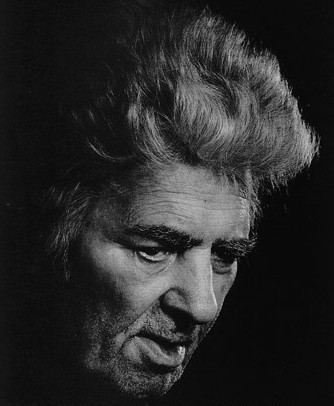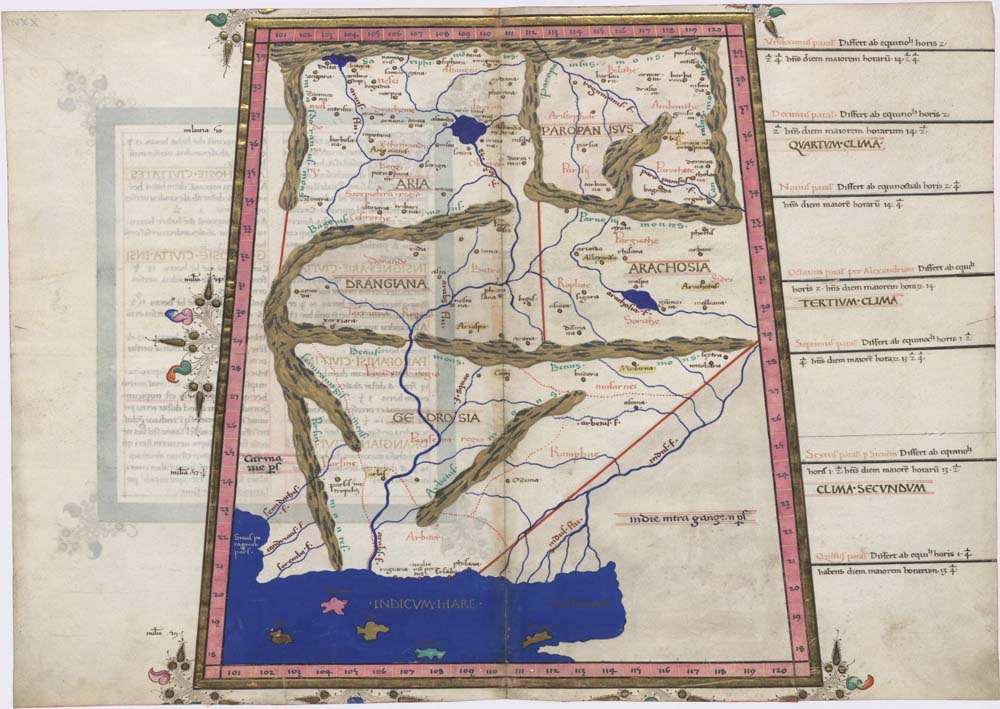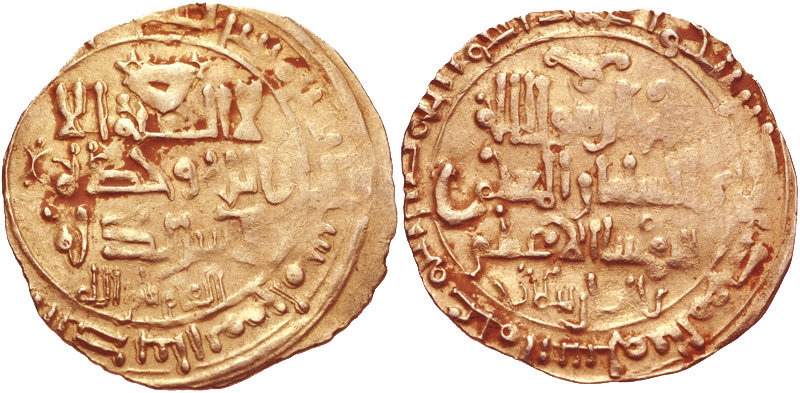|
Azraqi
Abul-Mahāsin Abu Bakr Zaynuddin Azraqi ( fa, ابوالمحاسن ابو بكر زين الدين ازرقی) was an 11th-century poet who lived in Iran. Firdowsi is said to have taken refuge in Azraqi's father's house (''Ismail Varrāq'', "the book seller") on his flight from Ghazneh to Tus. Born in Herat, Azraqi was an eminent panegyrist. He turned ''Alfiyya va Shalfiyya'' into poetry, and is said to have presented himself to ''Shamsudowleh Abolfavāris Tughan-Shah'', son of Alp Arslan. He also wrote a version of the ''Sandbad nama''. Except for his qasidahs, none of the aforementioned works remain. He died in 1072 CE. References * Jan Rypka, ''History of Iranian Literature''. Reidel Publishing Company. ASIN B-000-6BXVT-KAZRAQĪ HERAVĪin the Encyclopedia Iranica See also *List of Persian poets and authors *Persian literature Persian literature ( fa, ادبیات فارسی, Adabiyâte fârsi, ) comprises oral compositions and written texts in the Persian language a ... [...More Info...] [...Related Items...] OR: [Wikipedia] [Google] [Baidu] |
List Of Persian Poets And Authors
The list is not comprehensive, but is continuously being expanded and includes Persian writers and poets from Iran, Afghanistan, Azerbaijan, Bangladesh, India, Tajikistan, Uzbekistan, and Turkmenistan. This list is alphabetized by chronological order. Although a few authors in this list do not have their ethnic origin, nevertheless they have enriched Persian culture and civilization by their remarkable contributions to the rich Persian literature. The modern Persian speaker comprehends the literature of the earliest Persian poets including founder of the Persian poetry and literature Rudaki (approximately 1150 years ago) all the way down to the works of modern Persian poets. Some names that lived during the turn of a century appear twice. From the 7th to the 8th centuries *Abu'l-Abbas Marwazi 9th century * Rudaki (رودکی) * Muhammad al-Bukhari Persian Islamic Scholar, (810 - 870) * Mansur Al-Hallaj (منصور حلاج) * Shahid Balkhi (ابوالحسن شهيدبن حسي ... [...More Info...] [...Related Items...] OR: [Wikipedia] [Google] [Baidu] |
Iran
Iran, officially the Islamic Republic of Iran, and also called Persia, is a country located in Western Asia. It is bordered by Iraq and Turkey to the west, by Azerbaijan and Armenia to the northwest, by the Caspian Sea and Turkmenistan to the north, by Afghanistan and Pakistan to the east, and by the Gulf of Oman and the Persian Gulf to the south. It covers an area of , making it the 17th-largest country. Iran has a population of 86 million, making it the 17th-most populous country in the world, and the second-largest in the Middle East. Its largest cities, in descending order, are the capital Tehran, Mashhad, Isfahan, Karaj, Shiraz, and Tabriz. The country is home to one of the world's oldest civilizations, beginning with the formation of the Elamite kingdoms in the fourth millennium BC. It was first unified by the Medes, an ancient Iranian people, in the seventh century BC, and reached its territorial height in the sixth century BC, when Cyrus the Great fo ... [...More Info...] [...Related Items...] OR: [Wikipedia] [Google] [Baidu] |
Firdowsi
, image = Statue of Ferdowsi in Tus, Iran 3 (cropped).jpg , image_size = , caption = Statue of Ferdowsi in Tus by Abolhassan Sadighi , birth_date = 940 , birth_place = Tus, Samanid Empire , death_date = 1019 or 1025 (87 years old) , death_place = Tus, Ghaznavid Empire , occupation = Poet , notable_works = ''Shahnameh'' , genre = Persian poetry, national epic , language = Early Modern Persian , movement = , period = Samanids and Ghaznavids , influences = , influenced = Abul-Qâsem Ferdowsi Tusi ( fa, ; 940 – 1019/1025 CE), also Firdawsi or Ferdowsi (), was a Persian poet and the author of ''Shahnameh'' ("Book of Kings"), which is one of the world's longest epic poems created by a single poet, and the greatest epic of Persian-speaking countries. Ferdowsi is celebrated as one of the most influential figures of Persian literature and one of the greatest in the history of literature. Name Except for his kunya ( – ) and his laqab ( – ''Ferdowsī'', ... [...More Info...] [...Related Items...] OR: [Wikipedia] [Google] [Baidu] |
Ghazneh
Ghazni ( prs, غزنی, ps, غزني), historically known as Ghaznain () or Ghazna (), also transliterated as Ghuznee, and anciently known as Alexandria in Opiana ( gr, Αλεξάνδρεια Ωπιανή), is a city in southeastern Afghanistan with a population of around 190,000 people. The city is strategically located along Highway 1, which has served as the main road between Kabul and Kandahar for thousands of years. Situated on a plateau at 2,219 metres (7,280 ft) above sea level, the city is south of Kabul and is the capital of Ghazni Province. Ghazni Citadel, the Minarets of Ghazni, the Palace of Sultan Mas'ud III, and several other cultural heritage sites have brought travelers and archeologists to the city for centuries. During the pre-Islamic period, the area was inhabited by various tribes who practiced different religions including Zoroastrianism, Buddhism and Hinduism. Arab Muslims introduced Islam to Ghazni in the 7th century and were followed in the 9th c ... [...More Info...] [...Related Items...] OR: [Wikipedia] [Google] [Baidu] |
Tus, Iran
Tus (Persian: توس Tus), also spelled as Tous or Toos, is an ancient city in Razavi Khorasan Province in Iran near Mashhad. To the ancient Greeks, it was known as Susia ( grc, Σούσια). It was also known as Tusa. Tus was divided into four cities, Tabran, Radakan, Noan and Teroid. The whole area which today is only called Tus was the largest city in the whole area in the fifth century. History According to legend Tous son of Nowzar founded the city of Tous in the province of Khorassan next to today's city of Mashhad. It is said that the city of Tous was the capital of Parthia and the residence of King Vishtaspa, who was the first convert to Zoroastianism. It was captured by Alexander the Great in 330 BCE. Tus was taken by the Umayyad caliph Abd al-Malik and remained under Umayyad control until 747, when a subordinate of Abu Muslim Khorasani defeated the Umayyad governor during the Abbasid Revolution. In 809, the Abbasid Caliph Harun al-Rashid fell ill and died in ... [...More Info...] [...Related Items...] OR: [Wikipedia] [Google] [Baidu] |
Herat
Herāt (; Persian: ) is an oasis city and the third-largest city of Afghanistan. In 2020, it had an estimated population of 574,276, and serves as the capital of Herat Province, situated south of the Paropamisus Mountains (''Selseleh-ye Safēd Kōh'') in the fertile valley of the Hari River in the western part of the country. An ancient civilization on the Silk Road between the Middle East, Central and South Asia, it serves as a regional hub in the country's west. Herat dates back to Avestan times and was traditionally known for its wine. The city has a number of historic sites, including the Herat Citadel and the Musalla Complex. During the Middle Ages Herat became one of the important cities of Khorasan, as it was known as the ''Pearl of Khorasan''. After the conquest of Tamerlane, the city became an important center of intellectual and artistic life in the Islamic world. Under the rule of Shah Rukh the city served as the focal point of the Timurid Renaissance, whose glor ... [...More Info...] [...Related Items...] OR: [Wikipedia] [Google] [Baidu] |
Panegyrist
A panegyric ( or ) is a formal public speech or written verse, delivered in high praise of a person or thing. The original panegyrics were speeches delivered at public events in ancient Athens. Etymology The word originated as a compound of grc, παν- 'all' (the form taken by the word πᾶν, neuter of πᾶς 'all', when that is used as a prefix) and the word grc, ἄγυρις, ágyris 'assembly' (an Aeolic dialect form, corresponding to the Attic or Ionic form grc, ἀγορά, agorá). Compounded, these gave grc, πανήγυρις, panḗgyris 'general or national assembly, especially a festival in honour of a god' and the derived adjective grc, πανηγυρικός, panēgyrikós 'of or for a public assembly or festival'. In Hellenistic Greek the noun came also to mean 'a festal oration, laudatory speech', and the adjective 'of or relating to a eulogy, flattering'. The noun grc, πανήγυρις, panḗgyris had been borrowed into Classical Latin by around the s ... [...More Info...] [...Related Items...] OR: [Wikipedia] [Google] [Baidu] |
Alp Arslan
Alp Arslan was the second Sultan of the Seljuk Empire and great-grandson of Seljuk, the eponymous founder of the dynasty. He greatly expanded the Seljuk territory and consolidated his power, defeating rivals to the south and northwest, and his victory over the Byzantines at the Battle of Manzikert, in 1071, ushered in the Turkoman settlement of Anatolia. "But the Battle of Manzikert opened Asia Minor to Turkmen conquest" For his military prowess and fighting skills, he obtained the name ''Alp Arslan'', which means "Heroic Lion" in Turkish. Early life Alp Arslan was the son of Chaghri and nephew of Tughril, the founding Sultans of the Seljuk Empire. His grandfather was Mikail, who in turn was the son of the warlord Seljuk. He was the father of numerous children, including Malik-Shah I and Tutush I. It is unclear who the mother or mothers of his children were. He was known to have been married at least twice. His wives included the widow of his uncle Tughril, a Kara-Khanid pr ... [...More Info...] [...Related Items...] OR: [Wikipedia] [Google] [Baidu] |
Qasidah
The qaṣīda (also spelled ''qaṣīdah''; is originally an Arabic word , plural ''qaṣā’id'', ; that was passed to some other languages such as fa, قصیده or , ''chakameh'', and tr, kaside) is an ancient Arabic word and form of writing poetry, often translated as ode, passed to other cultures after the Arab Muslim expansion. The word ''qasidah'' is still used in its original birthplace, Arabia, and in all Arab countries. Well known ''qasā'id'' include the Seven Mu'allaqat and Qasida Burda ("Poem of the Mantle") by Imam al-Busiri and Ibn Arabi's classic collection "The Interpreter of Desires". The classic form of qasida maintains a single elaborate metre throughout the poem, and every line rhymes on the same sound.Akiko Motoyoshi Sumi, ''Description in Classical Arabic Poetry: ''Waṣf'', Ekphrasis, and Interarts Theory'', Brill Studies in Middle Eastern literatures, 25 (Leiden: Brill, 2004), p. 1. It typically runs from fifteen to eighty lines, and sometimes more th ... [...More Info...] [...Related Items...] OR: [Wikipedia] [Google] [Baidu] |
Encyclopedia Iranica
An encyclopedia (American English) or encyclopædia (British English) is a reference work or compendium providing summaries of knowledge either general or special to a particular field or discipline. Encyclopedias are divided into articles or entries that are arranged alphabetically by article name or by thematic categories, or else are hyperlinked and searchable. Encyclopedia entries are longer and more detailed than those in most dictionaries. Generally speaking, encyclopedia articles focus on '' factual information'' concerning the subject named in the article's title; this is unlike dictionary entries, which focus on linguistic information about words, such as their etymology, meaning, pronunciation, use, and grammatical forms.Béjoint, Henri (2000)''Modern Lexicography'', pp. 30–31. Oxford University Press. Encyclopedias have existed for around 2,000 years and have evolved considerably during that time as regards language (written in a major international or a vernac ... [...More Info...] [...Related Items...] OR: [Wikipedia] [Google] [Baidu] |
Persian Literature
Persian literature ( fa, ادبیات فارسی, Adabiyâte fârsi, ) comprises oral compositions and written texts in the Persian language and is one of the world's oldest literatures. It spans over two-and-a-half millennia. Its sources have been within Greater Iran including present-day Iran, Iraq, Afghanistan, the Caucasus, and Turkey, regions of Central Asia (such as Tajikistan) and South Asia where the Persian language has historically been either the native or official language. For example, Rumi, one of the best-loved Persian poets, born in Balkh (in modern-day Afghanistan) or Wakhsh (in modern-day Tajikistan), wrote in Persian and lived in Konya (in modern-day Turkey), at that time the capital of the Seljuks in Anatolia. The Ghaznavids conquered large territories in Central and South Asia and adopted Persian as their court language. There is thus Persian literature from Iran, Mesopotamia, Azerbaijan, the wider Caucasus, Turkey, Pakistan, Bangladesh, India, Tajikist ... [...More Info...] [...Related Items...] OR: [Wikipedia] [Google] [Baidu] |
1072 Deaths
1 (one, unit, unity) is a number representing a single or the only entity. 1 is also a numerical digit and represents a single unit of counting or measurement. For example, a line segment of ''unit length'' is a line segment of length 1. In conventions of sign where zero is considered neither positive nor negative, 1 is the first and smallest positive integer. It is also sometimes considered the first of the infinite sequence of natural numbers, followed by 2, although by other definitions 1 is the second natural number, following 0. The fundamental mathematical property of 1 is to be a multiplicative identity, meaning that any number multiplied by 1 equals the same number. Most if not all properties of 1 can be deduced from this. In advanced mathematics, a multiplicative identity is often denoted 1, even if it is not a number. 1 is by convention not considered a prime number; this was not universally accepted until the mid-20th century. Additionally, 1 is ... [...More Info...] [...Related Items...] OR: [Wikipedia] [Google] [Baidu] |










